The annual fee of an advocate in 2025: The BCU has changed the distribution
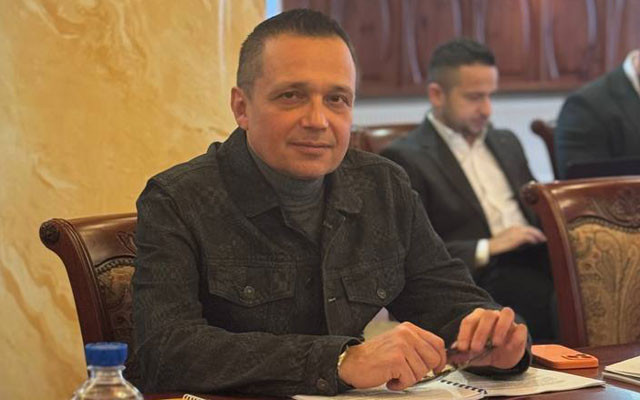
In 2025, the annual contribution to the bar self-government will continue to be one subsistence minimum for able-bodied persons (UAH 3,028, according to the Law on the State Budget). At the same time, its distribution will change.
The relevant decision was made by the Bar Council of Ukraine at its meeting on December 14.
Taking into account the requirements of the Regulation on these contributions (UNBA decision No. 4 of 03.02.2017), the payment of the contribution is a professional obligation of the advocate. This obligation must be fulfilled by January 31, 2025 by transferring funds in two payments to the bank accounts of the bar self-government bodies.
The new distribution will take into account the number of lawyers in regional councils as a criterion:
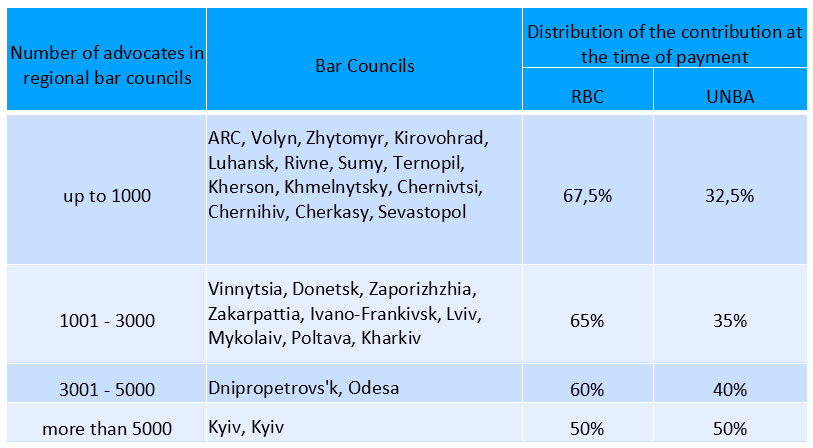
This decision was made to ensure the continuous operation of the bar self-government bodies. It is aimed at realizing the constitutional function of the Bar - protection of human rights and provision of quality legal aid guaranteed by the Constitution. The Bar is independent of the state and is not funded from any other sources than the contributions of its members, so a fair and balanced distribution of these contributions is extremely important.
Previously, the majority of the annual fee (70%) remained at the disposal of the regional bar councils without mandatory redistribution to the qualification and disciplinary commissions of the bar. At the same time, the QDCBs were funded in fact only at the expense of persons who passed the qualification exam.
«Such a model did not guarantee stability and predictability of their work, since the QDCBs perform not only qualification but also disciplinary functions. As a result, in a number of regions there was a financial imbalance: some bar councils accumulated significant balances, while other bar self-government bodies were practically unable to properly fulfill their powers, - explained Maksym Boldin, the head of the Higher Audit Commission of the Bar. - The purpose of the new mechanism is to balance resources between regions, support the CDC and ensure the smooth operation of the entire bar self-government system».
The head of the HACB emphasized that nothing has changed for lawyers: neither in terms of the amount nor the timing of the fee payment. The fee is still paid in full, but it will be distributed among various bodies in a new proportion. And any statements about alleged «additional payments» or alleged «funds taken away from someone» are groundless.
M. Boldin also said that the additional funds to be received by the UNBA will be used not only to support the High Qualification and Disciplinary Commission of the Bar and small regional bodies, but also to finance the activities of regional representatives in the national bar self-government bodies - the Bar Council of Ukraine and the HQDCB. «This approach makes it impossible for these members to depend on regional councils and eliminates the risk of conflicts of interest. In particular, this is important when considering disciplinary complaints between lawyers from different regions, where transparent and impartial funding from the center will promote objectivity and independence, - he explained. - This is a fair equalization of the financial support of the system, designed to prevent destabilization and ensure the effective, independent and fair functioning of the bar throughout Ukraine».
Popular news

Discussion
Why lowering the age of marriage lacks legal logic
Although until 2012 there was a provision in family law that allowed children to marry from the age of 14 under certain circumstances, its return to Ukrainian law would contradict international obligations and the logic of criminal law.
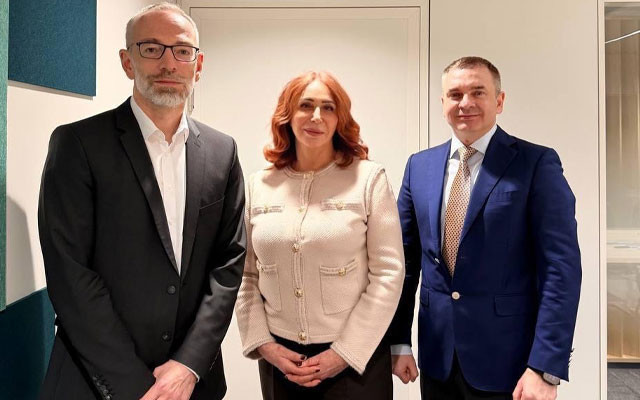
European integration
Open dialogue between the UNBA and the European Commission on the path to EU
The Ukrainian National Bar Association held a working meeting in Brussels with Mr Wolfgang Nozar, Head of Unit for Governance, Rule of Law and Financial Assistance, Directorate-General for Enlargement and Eastern Neighbourhood (DG ENEST), European Commission.

Self-government
A report on Ukrainian advocacy was presented in the European Parliament
Can a shadow report on advocacy replace the political framework of the Roadmap on the rule of law with demands for the restructuring of self-government? Where is the line between accountability and the seizure of institutions? And how can we respond to narratives with data rather than impressions?
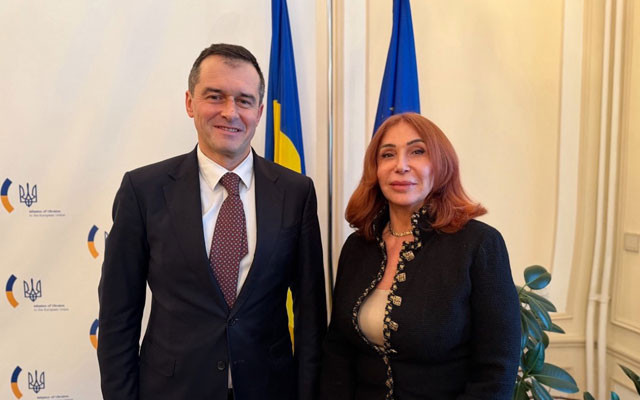
European integration
UNBA and Ukraine's representation to the EU have synchronized their priorities
On February 5, in Brussels, the President of the UNBA, BCU Lidiya Izovitova held a working meeting with the Ambassador Extraordinary and Plenipotentiary of Ukraine, Representative of Ukraine to the European Union Vsevolod Chentsov.
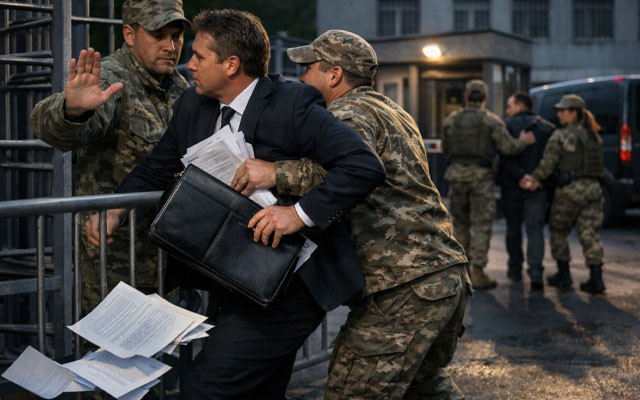
Guarantees of the practice of law
Proceedings opened following attack on advocate in Dnipro
The Committee for the protection of advocates' rights and guarantees of legal practice of the UNBA appealed to law enforcement agencies in connection with an advocate's report of an attack while performing his professional duties. The information was entered into the Unified Register of Pre-trial Investigations and a pre-trial investigation was initiated.
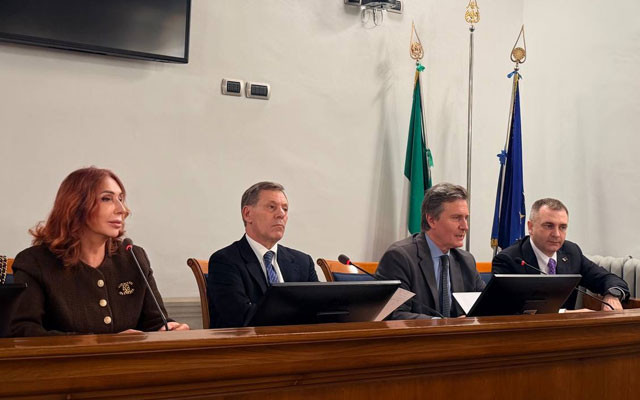
Interaction
«With us — to Europe»: Italian advocacy supports UNBA initiatives
On January 30, a meeting was held in Rome between a delegation from the Ukrainian National Bar Association and the National Bar Council of Italy (Consiglio Nazionale Forense, CNF) on the standards and practices of the legal profession and their significance for Ukraine's European integration process.
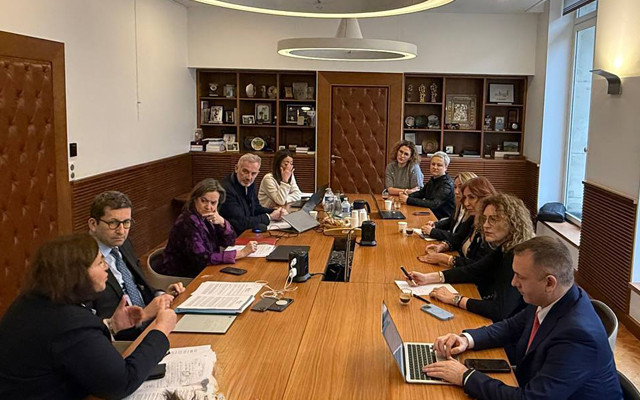
Interaction
France confirms cooperation with UNBA on reforms in the field of the rule of law
On January 29, a working meeting between representatives of the Ukrainian National Bar Association and the French National Bar Council (Conseil National des Barreaux, CNB) took place in Paris.
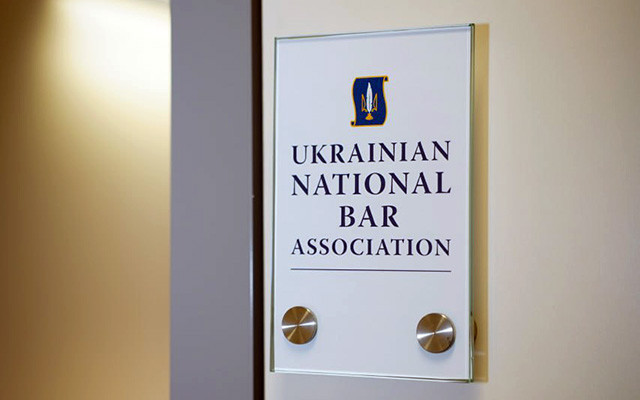
Abroad
UNBA office opens in EU capital
To strengthen the institutional presence of the Ukrainian advocacy community at the European level, an office of the Ukrainian National Bar Association has been opened in Brussels (Belgium), which will serve as a permanent platform for dialogue with European partners.
Publications

Volodymyr Matsko Extradition as a systemic form of rights violations

Victoria Yakusha, Law and Business The anti-corruption vertical cannot «take care» of the Bar as an institution, - acting head of the HQDCB

Censor.net Protecting advocates – protecting justice: addressing concerns about the new law

Ihor Kolesnykov A BRIEF SUMMARY REGARDING THE APPLICATION OF THE ORDER ON EXTENDED CONFISCATION IN LATVIA REGARDING FINANCIAL ASSETS OF…

Valentyn Gvozdiy WORKING IN A WAR ZONE

Lydia Izovitova Formula of perfection

Sergiy Vylkov Our judicial system is so built that courts do not trust advocates

Iryna Vasylyk Advocacy in the proclamation of Independence of Ukraine
